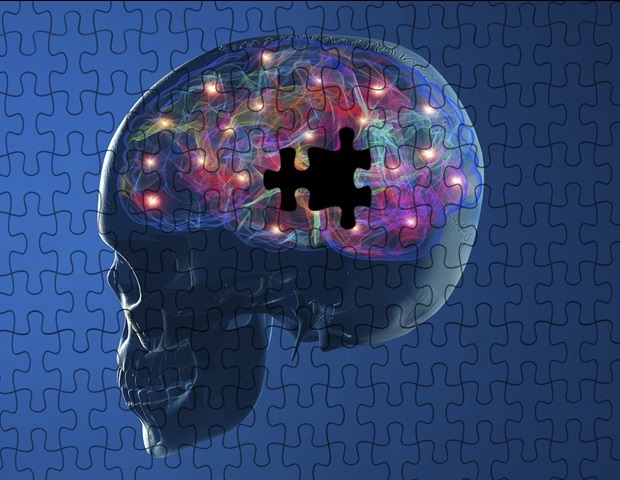
The sphere of non-pharmacological interventions for the remedy of people with Parkinson’s illness (PD) is reaching maturity and has the potential to considerably enhance affected person care sooner or later. A complement to the Journal of Parkinson’s Illness (JPD), revealed by IOS Press (now a part of Sage), captures a wealth of knowledge on non-pharmacological interventions addressing bodily and psychological views in addition to views on entry to care.
The voices of individuals with Parkinson’s are being heard increasingly, fuelling a extra holistic method to the remedy of this neurodegenerative illness. “We’re more and more witnessing participatory analysis approaches by which sufferers are concerned in designing novel remedy applications, making ready consensus statements on the supply of multidisciplinary care, and in defining end result measures,” says co-Visitor Editor of the complement Elke Kalbe, PhD, Medical Psychology | Neuropsychology and Gender Research & Heart for Neuropsychological Diagnostics and Intervention (CeNDI), College Hospital Cologne, and Medical School of the College of Cologne, Cologne, Germany.
Co-Visitor Editor Bastiaan R. Bloem, MD, Radboud College Medical Centre, Donders Institute for Mind, Cognition and Behaviour, Division of Neurology, Centre of Experience for Parkinson and Motion Issues, Nijmegen, Netherlands, and co-Editor-in-Chief of JPD, provides, “Coupled with the empirical observations of clinicians who regularly face the restrictions of pharmacotherapy and the rising assist of proof that comes from adequately designed analysis research, these developments yield a a lot wider perspective on affected person care than beforehand endorsed.”
Non-pharmacological interventions for individuals with PD have historically been considered supportive measures to primarily alleviate motor signs. Whereas physiotherapy, speech-language remedy, and occupational remedy have progressively grow to be integral components of the general administration of PD, different non-pharmacological interventions like cognitive coaching, cognitive behavioral remedy, and artwork or mild remedy are solely simply starting to be included in remedy tips.
Developments which are highlighted on this complement embrace:
- Enlargement of the kinds of interventions
- Standardization of intervention protocols
- Improvement of digital types of interventions
- Scientific analysis of the feasibility and results of the interventions
- Understanding of underlying mechanisms of therapy-induced plasticity processes
- Integration of non-pharmacological interventions in affected person care ideas
- Transition from merely symptomatic to preventive therapies
The sphere is shifting from tackling motor to non-motor signs resembling stress. The article “Assuaging Stress in Parkinson’s Illness: Symptomatic Remedy, Illness Modification, or Each?” critiques the proof on stress-alleviating methods resembling train and mindfulness-based interventions in PD, focusing each on symptomatic results and disease-modifying results. The article sheds mild on the affect of stress and stress-alleviation on medical signs and the pathophysiology in PD.
In individuals with PD, stress is believed to play a very essential function. Not solely does acute stress worsen the symptomatic manifestations of the illness, resembling tremor, dyskinesia, or freezing of gait, current proof in animals additionally means that persistent stress might affect the diploma of nigro-striatal cell loss.”
Rick C. Helmich, MD, PhD, Lead Creator, Radboud College Medical Centre, Donders Institute for Mind, Cognition and Behaviour, Neurology Division, Centre of Experience for Parkinson and Motion Issues, Nijmegen, the Netherlands
The overview article “Ache and the Non-Pharmacological Administration of Ache in Individuals with Parkinson’s Illness” describes ache and the biopsychosocial mannequin of ache. It explores how ache is classed in PD and describes the three fundamental kinds of ache: nociceptive, neuropathic, and nociplastic ache. Lead creator Natalie Elizabeth Allen, PhD, Self-discipline of Physiotherapy, School of Medication and Well being, The College of Sydney, Australia, notes, “This background gives context for a dialogue of non-pharmacological ache administration methods that will help within the administration of ache in individuals with Parkinson’s illness together with train, psychological methods, acupuncture and therapeutic massage. Whereas there may be little PD-specific analysis to tell the non-pharmacological administration of ache, findings from present PD analysis are mixed with that from persistent ache analysis to current suggestions for medical follow. Suggestions embrace evaluation that comes with potential biopsychosocial contributors to ache that can then information a holistic, multi-modal method to administration.”
Different articles within the complement spotlight points across the implementation and provision of satisfactory entry to multidisciplinary care, the optimization of digital well being literacy to allow advantages of technological approaches, revolutionary and legitimate end result measures to seize delicate modifications in signs and wellbeing, and arts-based interventions as rising therapeutic modalities that will uniquely deal with points of the illness that typical remedies can not handle.
Co-Visitor Editor Lorraine V. Kalia, MD, PhD, Krembil Analysis Institute, Edmond J. Safra Program in Parkinson’s Illness and the Morton and Gloria Shulman Motion Issues Clinic, Toronto Western Hospital, College Well being Community, Toronto, Canada, and co-Editor-in-Chief of JPD, says, “We see that clinicians are not limiting their focus to conventional non-pharmacological approaches for under motor signs. For instance, they’re embracing preventive interventions, resembling train, in addition to arts-based interventions, resembling dance and visible arts, which have the potential to supply a holistic method to handle varied motor and non-motor signs of PD whereas additionally enhancing total wellbeing. As well as, novel approaches to affect cognitive impairment and affective problems are rising, with know-how enjoying an essential function within the supply and outreach of non-pharmacological interventions.”
“The scope of non-pharmacological interventions is widening, and healthcare professionals ought to prioritize these areas of their follow. The sphere of non-pharmacological remedy is clearly reaching medical and scientific maturity and has the potential to considerably enhance affected person care sooner or later,” concludes co-Visitor Editor Alice Nieuwboer, PhD, KU Leuven, Division of Rehabilitation Sciences, Analysis Group for Neurorehabilitation (eNRGy), Leuven, Belgium.
Supply:
Journal reference:
Kalbe, E., et al. (2024). Particular Difficulty: Non-Pharmacological Interventions for Individuals with Parkinson’s Illness: Are We Getting into a New Period? Journal of Parkinson’s Illness. doi.org/10.3233/JPD-249009


